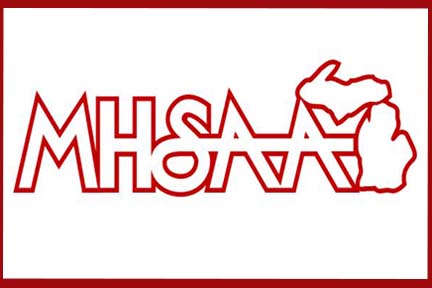FOR IMMEDIATE RELEASE
June 18, 2021
Contact: [email protected]
Gov. Whitmer Announces Grants to Nine Community Colleges to Support Students Enrolled in Futures for Frontliners and Michigan Reconnect
Five community colleges each awarded up to $150,000 to improve completion rates; four colleges receive support to hire a completion coach
LANSING, Mich.— Governor Whitmer today announced the Michigan Department of Labor and Economic Opportunity (LEO) in partnership with the Michigan College Access Network (MCAN) have awarded a total of $750,000 to nine community colleges in order to improve student success rates among adult students. Five colleges will receive Sixty by 30 Student Success Grants of up to $150,000 each. Four colleges will receive up to $20,000 to hire a college completion coach in partnership with MCAN.
“These grants are essential to helping us provide Michiganders the education they need to get better-paying, high-skill jobs,” said Governor Whitmer. “Advancing higher education has been a day one priority for my administration, and the MI Reconnect and Futures for Frontliners programs help us accomplish our long-term goal of 60 by 30—ensuring 60% of Michiganders have a post-secondary degree or skills training by 2030. As we emerge from the pandemic together and continue our economic comeback, we will stay laser-focused on helping people develop solid skills so they can find good jobs for great pay.”
These Sixty by 30 Student Success grants were awarded based on a competitive application process, and will provide funding for grantees to implement and institutionalize new strategies to increase completion rates for Futures for Frontliners and Michigan Reconnect students above each college’s current rate for all adult students.
LEO’s Office of Sixty by 30 works closely with the Michigan Center for Educational Performance and Information (CEPI) to monitor data on postsecondary student success and uses the data to make informed decisions on strategy. MI School Data’s Success Rates report shows the number of degree-seeking students who earn a certificate, associate or bachelor’s degree at a public university or community college, as well as students who transfer from community college to a four-year institution to continue their education, increasing their knowledge and skills. The report captures both part- and full-time enrollment, as well as mobility between institutions, and is critical information as the state continues to move the needle on its Sixty by 30 goal of ensuring 60% of Michiganders will have a postsecondary degree or certificate by 2030.
With more than 15,000 enrolled Futures for Frontliners scholarship recipients (Frontliners) and the 73,000+ growing Michigan Reconnect applicant pool (Reconnectors), LEO is committed to supporting innovative partnerships and programs to help more Michiganders succeed in their pursuit of credentials that lead directly to an in-demand, high-wage career.
“We know that it can be tough to juggle life – many who are returning to their studies will have jobs, family obligations and bills to pay which can get in the way of receiving that degree or certificate,” said Susan Corbin, LEO acting director. “At our current 49.1% credential attainment rate in the state, it will take more than just tuition assistance to get us to 60% by 2030. And that’s why our partnership with MCAN and the community colleges is so critical to offer an additional layer of support to help these students succeed.”
In 2019, Michigan became the latest state to join Complete College America’s Alliance of States. Complete College America (CCA) works across more than 47 states, higher education systems, and consortia to align policy, perspective, and practice to improve college completion rates. LEO worked closely with CCA to identify the key strategies that community colleges can implement to help more adult students earn their degree.
The grants were awarded based on evidence supporting the likely effectiveness of the strategy or practice(s) for increasing persistence and completion rates for adults. All funded initiatives were required to be new to the college, promise impact at scale, be potentially transferable to other colleges and subject to evaluation.
Below is a list of the five community colleges that will receive grants including highlights of the program initiatives they plan to implement:
Henry Ford College: First Year Experience
Henry Ford College will develop, offer and require a one-credit hour structured course tailored to adult students that will help connect them to resources that foster their academic and career goals.
Mott Community College: Corequisite Support
Mott Community College will implement corequisite and intensive support models for delivering developmental education to ensure that adult students who need extra academic support are able to build momentum and succeed in college-level courses during their first year.
Muskegon Community College: 360° Coaching
Muskegon Community College will provide adults students with a designated coach to contact whenever issues arise in and outside of the classroom. The coach will also proactively survey students on their needs and connect them with targeted resources to help them succeed.
Oakland Community College: Credit for Competency
Oakland Community College will create a systematic process to award appropriate credits for adult students with prior learning, skills and experiences.
Southwestern Michigan Community College: Career Exploration
Southwestern Michigan College will create a Career Services Office and hire a dedicated career coach who will identify local, in-demand careers for adult students. This specialist will empower Reconnect students to make informed decisions about the programs of study and credentials that lead to jobs that pay a living wage.
In addition, the following four community colleges will receive $20,000 to support the placement of a full-time AmeriCorps member to serve as a dedicated completion coach for adult students, in partnership with MCAN’s College Completion Corps initiative:
- Lake Michigan College
- Monroe County Community College
- Montcalm Community College
- St. Clair County Community College
These funds couldn’t come at a better time as Frontliners and Reconnects are well on their way to filling the state’s most in-demand careers with more than 530,000 jobs expected to become available by 2028 in the Professional Trades alone.
“To reach our state’s Sixty by 30 goal, we must ensure that students are supported once they arrive on campus, especially low-income students, first-generation college-going students and students of color,” said Ryan Fewins-Bliss, MCAN executive director. “Through partnering with LEO on the Sixty by 30 Success Grants and new College Completion Corps placements, we are providing resources that will help all adult students be successful as they complete their degrees or certificates.”
As part of the partnership, MCAN will administer the grant funds to the institutions and facilitate the grant agreement and reporting process.
The state encourages Reconnect applicants to take the next step in the process and complete their Free Application for Federal Student Aid (FAFSA) and begin to enroll in community college – it’s not too late.
Michigan Reconnect builds on the success of the Futures for Frontliners and will pay the cost of in-district tuition, mandatory fees and contact hours for eligible adults who want to pursue an associate degree or skills certificate at a Michigan public community college.
Reconnect scholarships are accepted by all Michigan public community colleges and are even available to eligible adults who are already enrolled at a Michigan public community college. The program pays the remaining balance of in-district tuition, contact hours and mandatory fees after other state and federal financial aid have been applied. For those who choose to attend an out-of-district community college, Reconnect will pay the in-district portion of tuition.
To be eligible for Michigan Reconnect, you must:
- Be at least 25 years old when you apply
- Have lived in Michigan for a year or more
- Have a high school diploma or equivalent
- Have not yet completed a college degree (associate or bachelor’s)
Interested Michiganders 25+ should visit michigan.gov/Reconnect to explore statewide and regional in-demand career opportunities and get started on their application.
Community college grant recipient quotes
“Mott Community College (MCC) is grateful to receive the Michigan College Access Network grant for the work that we are doing to reform developmental education,” said MCC President Dr. Beverly Walker-Griffea. “This investment by the State of Michigan will enable us to accelerate implementation of classes and support programs designed to increase student retention and success, particularly for people of color, first-generation and at-risk students.”
“Henry Ford College is deeply committed to student success and the State’s Sixty by 30 Goal,” said Henry Ford College President Russ Kavalhuna. “We meet our students where they are, help them choose the best program, and support them as they earn a degree and advance into a successful career.”
“To remain a growing economic force, It is critical that Michigan improve its post-secondary education metrics,” said Muskegon Community College President Dale K. Nesbary, Ph.D. “We at Muskegon Community College are gratified to have been awarded a Sixty by 30 grant helping the state close the existing skills gap and assist in efforts to upskill our communities. We thank the Gov. Whitmer for providing us the opportunity to do just that.”
“At Oakland Community College (OCC) we know how difficult it can be for adults to continue pursuing a college education, especially with the work and family challenges they often face,” said OCC Chancellor Peter J. Provenzano, Jr. “By developing a Credit for Competency system to award students college credits for prior learning, work skills and experiences, we hope it will give them the advantage they need to earn a certificate or associate degree.”


















